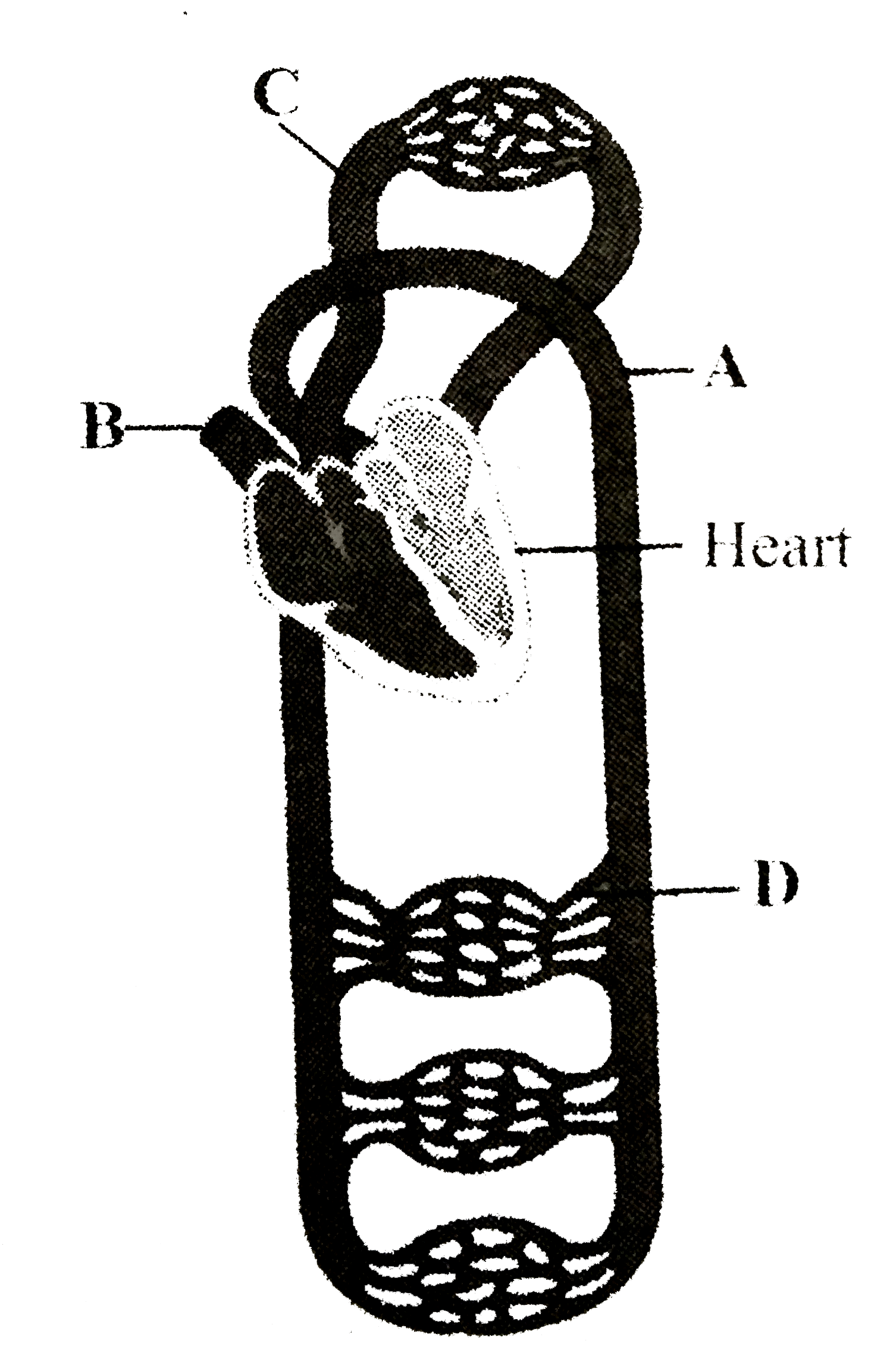In mammalian embryo the pulmonary aorta communicates with carotico-systemic aorta by a narrow ductus arteriosus, in the adult this connection closes learving :−
Fossa -ovalis
Carotico pulmonary aperture
Ligamentum arteriosus
None of these
The correct Answer is:3
Step by step video, text & image solution for In mammalian embryo the pulmonary aorta communicates with carotico-systemic aorta by a narrow ductus arteriosus, in the adult this connection closes learving :- by Biology experts to help you in doubts & scoring excellent marks in Class 12 exams.
Similar Questions
Name the connection between the pulmonary trunk and systemic aorta. What does it represent?
View SolutionA : Isovolumetric systole of a normal cardiac cycle is responsible for the opening of semilunar valves causing the blood flow into aortic aorta and pulmonary aorta.
R : During isovolumetric systole, intraventricular pressure increases as semilunar and AV valves are closed and ventricles are contracting .View Solution
Knowledge Check
- Question 1 - Select One
Pulmonary aorta in mammlian embryo communicates with aorta by a thin vessel called ductus arteriosus which later closes are remains in adult as
AFossa ovalisBligamentum arteriosusCCarotico-pulmonary apertureDnone of the above - Question 2 - Select One
Read the following statements carefully :
(1) Gap junction facilitates the cells to communicate with each other by connecting the cytoplasm of two adjoining cells to cytoplasm of two adjoining cells .
(2) Adhering junctions help to stop substances from leaking across a tissue .
(3) compound epithelium covers the dry surface of the skin only and provides protection against chemical and mechanical stresses.
(4) most of the bones in vertebrates embryos are replaced by cartilages in adults.
How many of the above statement is/are correct ?AFourBThreeCOneDTwo - Question 3 - Select One
Read the statements and select the option which best describes the process that occurs during systemic circulation.
(i) The left atrium receives the oxygenated blood through the pulmonary veins. The left ventricle pumps the blood through the aorta to various parts and the deoxygenated blood reaches right atrium.
(ii) The left atrium receives the oxygenated blood through pulmonary veins and pumps the blood through the aorta to various parts and the deoxygenated blood reaches the right atrium.
(iii) The left atrium receives deoxygenated blood and pumps into left ventricles which in turn pumps into pulmonary artery for oxygenation.
(iv) The right atrium receives the deoxygenated blood and pumps into pulmonary artery for oxygenation.A(i) and (iii) are correctB(ii) is correctC(iii) and (iv) are correctD(iv) is correct
In these following correct statement about the heart are
I. The sino-atrial node (SAN) is present in the right top corner of the right atrium
II. Ligamentum arteriosum connects the aorta and pulmonary trunk.
III. Purkinje fibres constituent a portion of the bundle of His .
IV. The pulmonary trunk connects the right ventricle to the lungsView SolutionWhich of the following statements will be surely CORRECT about a vertebrate this has a complete four - chambered heart ?
I. The animal shows pulmonary respiration
II. The animal has left systemic arch (aorta curved to left).
IV. The animal can maintain constant body temperature .View SolutionRead the given statements about the blood vascular system of cockroach.
I. The circulatory system of cockroach is of closed type
II. It contains no blood vessels except aorta of the heart .
III. The heart is 6 - chambered.
IV The haemolymph is composed of coloruless plasma and haemocytes.
Which of the statement (s) given above is / are INCORRECT ?View SolutionRead the given statements aboue blood vascular system of cockraoch.
I. It is of closed type.
II. It contains no blood vessels except aorta.
III. Heart is 6 chambered.
IV. The haemolymph is composed of colourless plasma and haemocytes.
Choose the option with the incorrect statements.View SolutionThe given figure is of circulatory system. Identify the labelled parts (A-D) from the list (i-vii).
(i) Pulmonary circulation
(ii) Systemic circulation
(iii) Superior vena cava
(iv) Inferior vena cava
(v) Aorta
(vi) Veins and venules
(vii) Arterioles and capillaries
 View Solution
View Solution

